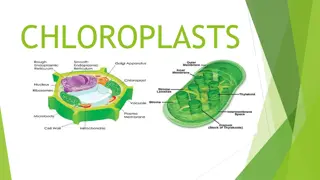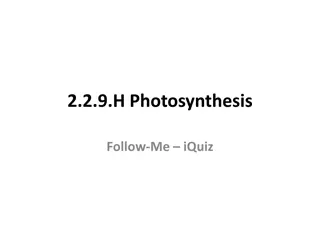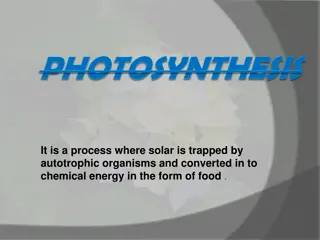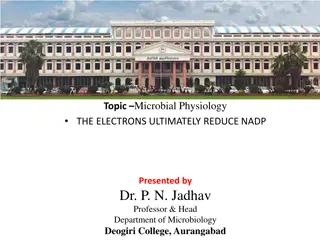Understanding Chloroplasts: Structure, Function, and Marker Enzymes
Chloroplasts are vital organelles in plant cells responsible for photosynthesis, converting light energy into chemical energy. They contain chlorophyll pigments for light absorption and play a crucial role in synthesizing foodstuffs. Marker enzymes such as RUBISCO, NADP-Reductase, and ATP synthase a
1 views • 7 slides
Understanding Photosynthesis: Role of NADP and Division into Light and Dark Stages
In photosynthesis, NADP plays a crucial role in carrying hydrogen into the dark stage for carbon dioxide reduction. The process is divided into light and dark stages where different components like chlorophyll, chloroplasts, and electron transfer mechanisms are involved. This division ensures effici
0 views • 50 slides
Understanding Photosynthesis and Photophosphorylation Processes
Photosynthesis is a vital process where autotrophic organisms trap solar energy to convert it into chemical energy in the form of food. Non-cyclic photophosphorylation involves the transfer of phosphate groups and ATP synthesis utilizing light energy. This process takes place at photosystem II in ch
0 views • 10 slides
Understanding Microbial Physiology: The Electron-NADP Reduction Pathway
Dr. P. N. Jadhav presents the process where electrons ultimately reduce NADP+ through the enzyme ferredoxin-NADP+ reductase (FNR) in microbial physiology. This four-electron process involves oxidation of water, electron passage through a Q-cycle, generation of a transmembrane proton gradient, and AT
0 views • 29 slides



